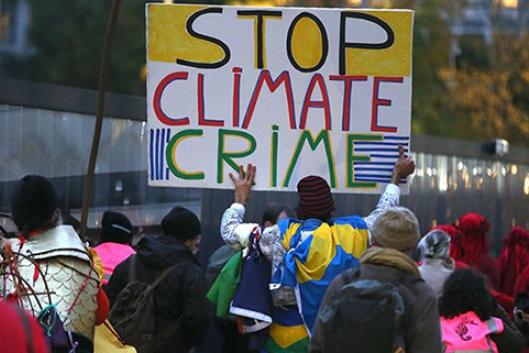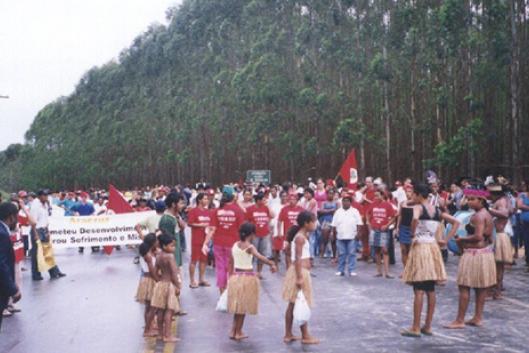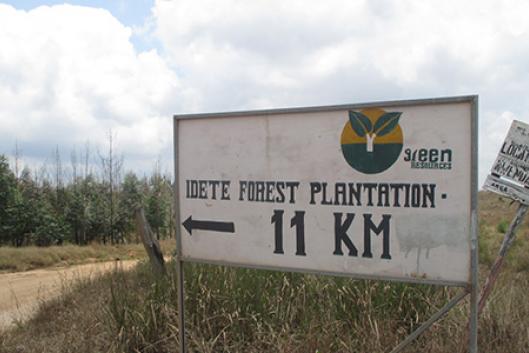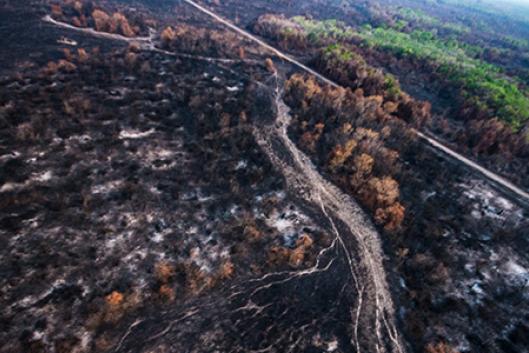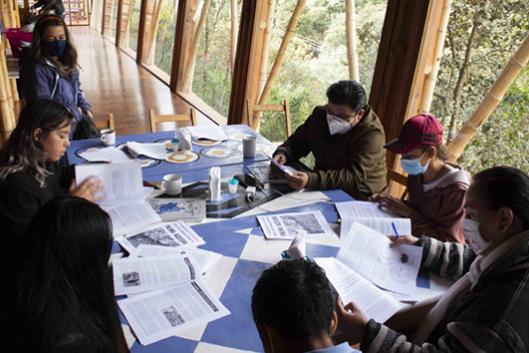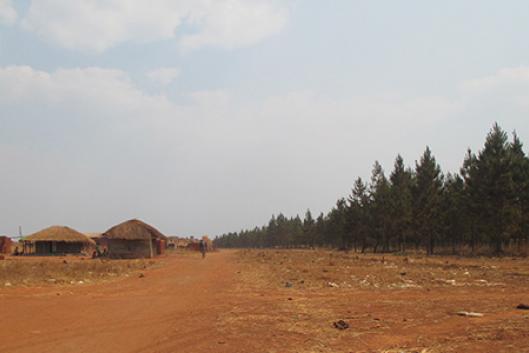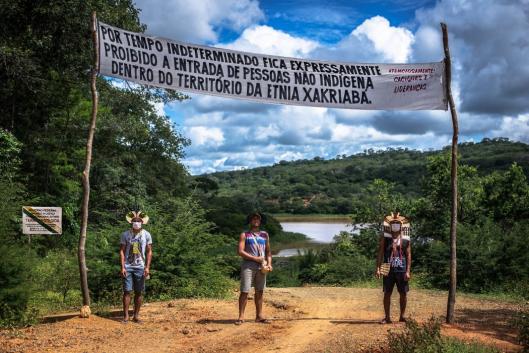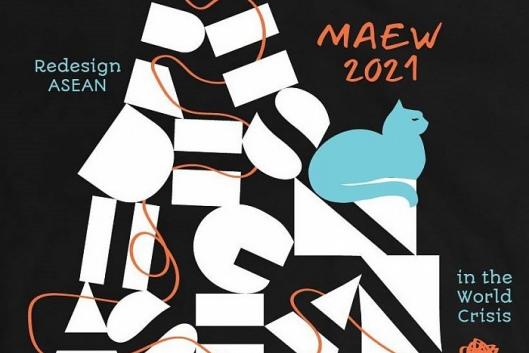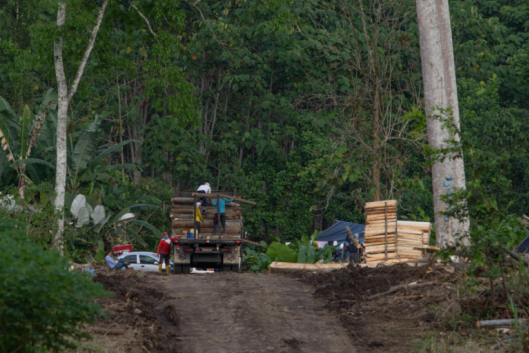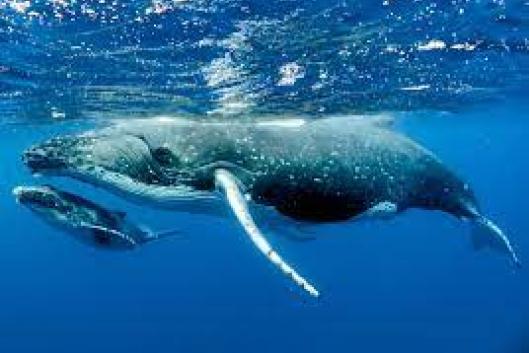The UN Land-Grabbing Summit in Glasgow made it once again clear that these spaces will never advance the already existing solutions to the climate crisis.
Bulletin 258 – Sep/Oct 2021
Communities resist land grabbing and tree plantations - 2021 climate summit will cause more of both
This Bulletin articles are written by the following organizations and individuals:
Two Tupinikim indigenous leaders from Brazil; SUHODE Foundation, Tanzania; four activist women from Brazil who from different spaces are related to the articulation “Agro é Fogo” (Agribusiness is Fire); declaration and sharing of experiences from the Mesoamerican Network Against Oil Palm; and from Mozambique contribute ADECRU – Acção Académica Para O Desenvolvimento Das Comunidades Rurai, JA! – Justiça Ambiental/Friends of the Earth – Mozambique, AJOCME – Associação de Jovens Combatentes Montes Errego, and Missão Tabita
WRM Bulletin
258
Sep/Oct 2021
OUR VIEWPOINT
COMMUNITIES RESIST LAND GRABBING AND TREE PLANTATIONS - 2021 CLIMATE SUMMIT WILL CAUSE MORE OF BOTH
-
17 December 2021Tupinikim indigenous leaders, in Brazil, share the experience of their people in the struggle against one of the largest eucalyptus plantation and pulp production companies in the world, Aracruz Celulose – currently named Suzano Papel e Celulose.
-
17 December 2021
Local Communities in Tanzania Continue to Face Problems Brought by Green Resources’ Tree Plantations
Green Resources Tanzania Limited (GRL)claims to offer solutions to climate change through planting monoculture trees. This wrong and misleading claim hides the reality on the ground: land grabbing, deforestation, destruction of grasslands and much social harm. -
17 December 2021Forest fires and deforestation are tools to consolidate the land grabbing that goes hand-in-hand with the expansion of the capitalist agricultural frontier into the territories of indigenous peoples and traditional communities.
-
17 December 2021One of the main causes of deforestation in Mesoamerica is the expansion of oil palm monoculture. An exchange of experiences brought together representatives from indigenous and peasant communities to coordinate their resistance.
-
17 December 2021On the frontlines of the promotion of monoculture tree plantations as a solution to the climate crisis, families affected by tree plantations in Mozambique, Tanzania and Brazil, have once again denounced the serious impacts on their lives and the environment.
RECOMMENDED
-
17 December 2021The report, “Violence against the Indigenous Peoples of Brazil—2020,” published annually by the Indigenous Missionary Council of Brazil (CIMI, by its Portuguese acronym), reflects the image of tragic year for the country’s native peoples. Contrary to what might be expected, the serious health crisis caused by the pandemic did not prevent grileiros [person or group of people who illegally appropriate public lands or others’ property, later claiming ownership through fraudulent documents], miners, loggers and other invaders from further increasing their offensives against indigenous lands.
-
17 December 2021The Oilwatch Latin America network released this statement in October 2021 to stress the urgency of ensuring that fossil fuel energies remain underground.
-
17 December 2021The Mekong/ASEAN Environmental Week (MAEW) is an annual regional platform and process for deeper sharing among people in the region of Southeast Asia, where key actors can exchange, analyze and debate on emerging issues that significantly affect them. This year the focus was on “Redesign ASEAN: Peoples' Voices in World Crises." Discussions covered the environmental situation as well as the economic, political, and other aspects that impact the region and its people. Presentations include energy in the region; Mekong ecology; climate crisis; cross border haze; plastic waste and ocean pollution; restriction of youth power; digital disruption; digital currency; green economy; blue economy; the role of ASEAN; and the geopolitics of global and regional powers.
-
17 December 2021In a recent publication, the Ecuadorian organization, Acción Ecológica, reveals how the extraction of balsa wood has affected Amazonian indigenous territories—impacting both the social fabric and the forests in the foothills of the Andes Mountains (including the Cuyabeno Wildlife Reserve). The balsa wood “boom” is a result of the Chinese wind industry, since China is the country that has built the most wind farms in recent years. The publication also addresses how the balsa wood business is structured in Ecuador, as well as its main producers and exporters. Read it in Spanish here.
-
17 December 2021An excerpt from a forthcoming book entitled “Climate Opium” explores how we are overdosing on false solutions to climate change, so much that the biggest mammals on earth are being forced into carbon pricing schemes. The excerpt focuses on how whales are being reduced to a giant carbon offset business opportunity based on how much carbon dioxide whales absorb and how their iron-rich excrement serves as food for tiny marine algae called phytoplankton, who also absorb carbon dioxide.
